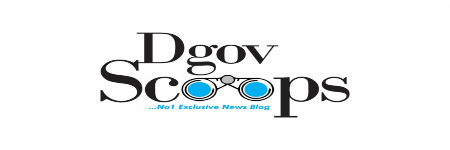Victoria bans public display of Nazi symbols in Australia
By Jennifer Ugwueke
Victoria will become the first Australian State or territory to ban the public display of Nazi symbols.
The proposed laws, expected to be introduced to state parliament in the first half of 2022 with bipartisan support, will prohibit the display of swastikas and other hate symbols in public spaces.
The Australian federal police earlier this year called for a ban on extremist insignia and propaganda.
The proposed Victorian laws will not include the use of symbols for educational or historical purposes.
Alongside the ban, Victoria will introduce sweeping new changes to anti-vilification protections, which will be extended to cover areas such as sexual orientation, gender identity and people with disabilities.
A report released by the Victorian parliament found that many people in the community had experienced hate language but, under current laws, protections only extend to race and religion.
The state attorney general, Jaclyn Symes, said on Thursday that the new anti-vilification laws, along with the banning of Nazi imagery, would “send a strong signal” to Victorians.
The Liberal member for Caulfield, David Southwick, agreed. His Melbourne electorate has a large Jewish community and Southwick said he had seen an escalation in recent years of the prevalence of hate symbols.
“A couple of years ago we saw a swastika painted on an aged care retirement home full of Holocaust survivors … and it’s not just an issue for the Jewish community, it’s right across the board,” Southwick said.
Last year, it was reported that a Nazi flag was flown over a home in north-west Victoria, with the local authorities unable to order its removal because it was technically legal.
“This abhorrent behaviour has no place in our state. The fact that you’re having to ban something that shouldn’t be happening in 2021 is quite sad, but it’s necessary,” Symes said.
Thursday’s announcement was widely supported by multicultural and human rights groups around Australia. Peter Wertheim, the co-chief executive officer of peak Jewish body the Executive Council of Australian Jewry, congratulated the Victorian government.
“New codes and symbols are continually being developed by hate groups and the legislation will need to be flexible enough to capture this,” he said.
“We hope the federal government will follow suit.”
The Equality Australia CEO, Anna Brown, also released a statement strongly supporting the move.
“We look forward to working with the government … to ensure the report’s recommendations are swiftly implemented,” she said.
So far, the new laws would only ban hate symbols in physical public spaces, although discussions will take place at a federal level with regards to online spaces.
Symes will be looking to engage the federal attorney general, Michaelia Cash, later in the year on banning internet distribution of these symbols.
“I hope that other states will follow our lead … but I think anything that we can do as a nation to prevent these hurtful symbols and the messages that they convey should be considered by all states,” she said.
“We want to send a message to people that are flirting with neo-nazism that this is not something that Australia accepts.”




